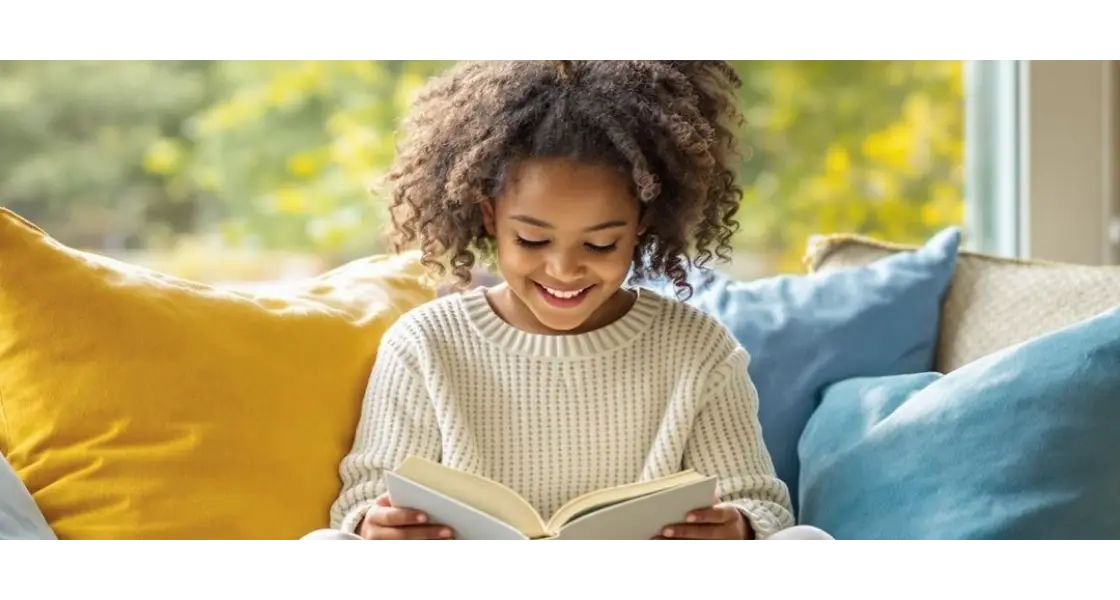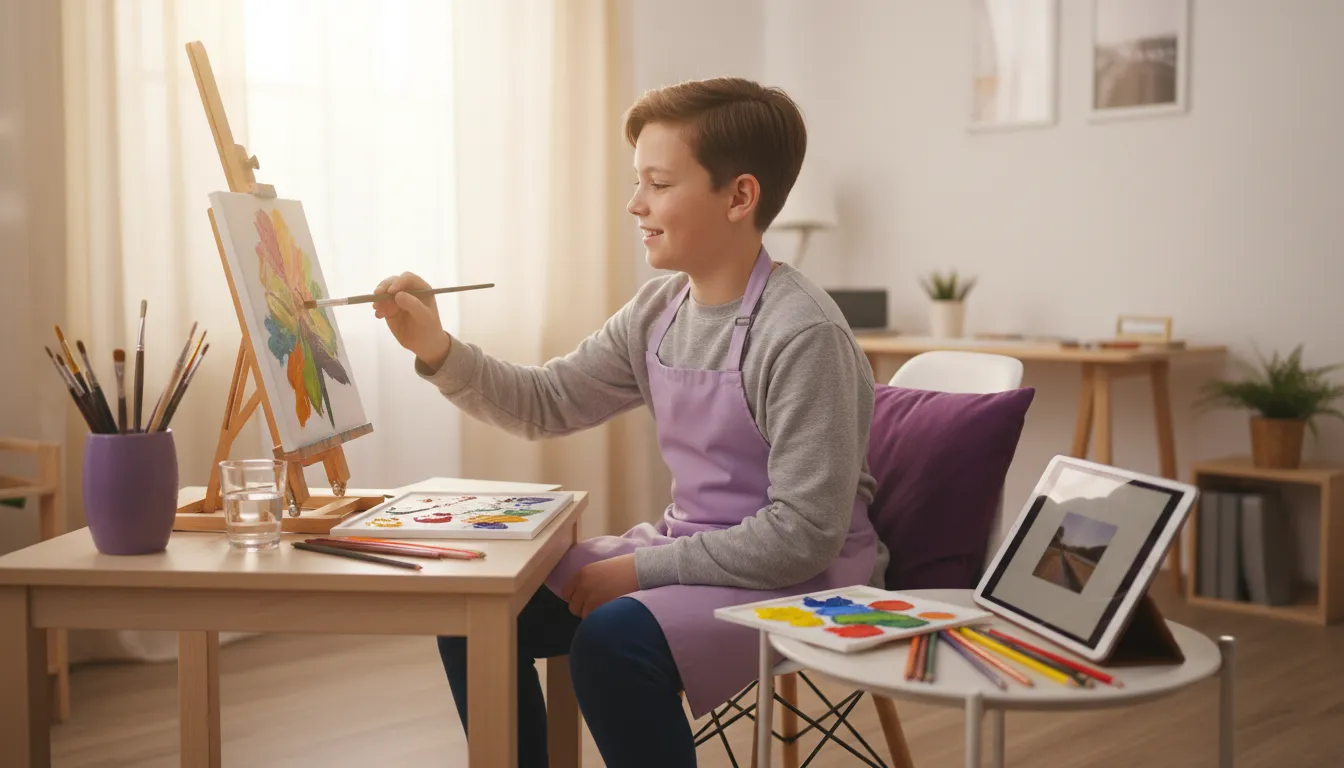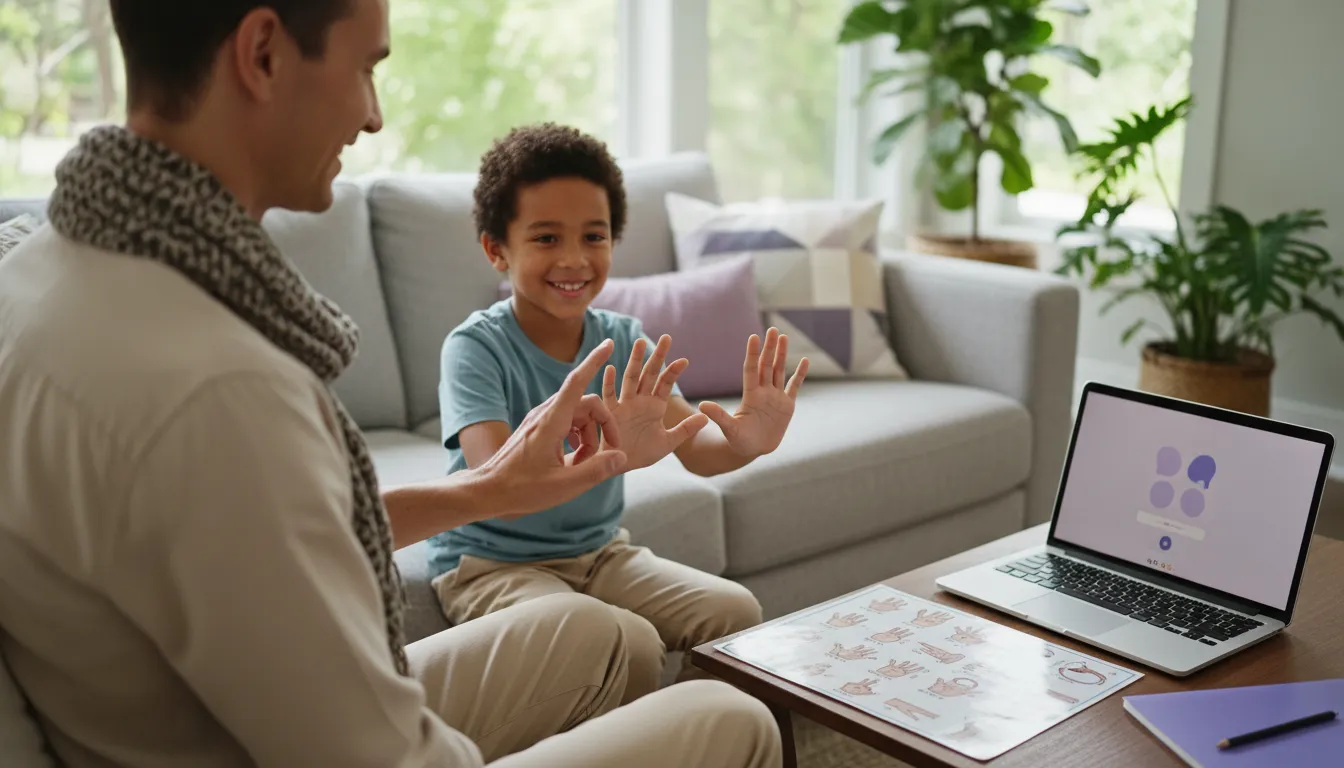By third grade, kids are ready to tackle a broader vocabulary that stretches beyond everyday conversation. Whether they’re reading chapter books or explaining ideas in writing, a solid word bank makes it all easier and more enjoyable.
We’ll walk through common vocabulary themes for third graders, ways to practice new words at home, and playful learning tools to keep things fresh. Plus, you’ll see how Outschool can support your efforts with live classes and language-rich experiences that spark curiosity and connection.
Why building vocabulary in 3rd grade matters
Third grade marks a pivotal moment when learners transition from learning to read to reading to learn. At this stage, expanding word knowledge directly fuels reading comprehension and writing fluency, creating a foundation for academic success across all subjects.
Knowledge of vocabulary contributes significantly to a student's ability to engage with texts and express their ideas effectively. When children encounter unfamiliar words in their reading, rich word knowledge helps them decode meaning through context clues and word relationships, making complex texts more accessible and enjoyable.
The power of words in social growth
Beyond academic achievement, a strong vocabulary does more than improve test scores; it transforms how children see themselves as learners and communicators.
When children can articulate their thoughts with precision and variety, their confidence soars in classroom discussions, creative writing, and everyday conversations. This self-assurance creates a positive cycle where children become more willing to take risks with language, ask questions, and engage deeply with new concepts.
The importance of vocabulary for 3rd graders also extends beyond academics into social interactions, where clear communication helps build friendships and navigate complex emotions. It’s a lifelong tool that helps children connect, express themselves, and grow with confidence wherever they go.
Vocabulary to explore in 3rd grade
Building a strong foundation with the most important vocabulary words for 3rd graders means focusing on words that appear across subjects and support both reading comprehension and clear communication. The best vocabulary lists combine frequently encountered words your child sees daily with academic terms that boost confidence in all subject areas.
- Academic action words help learners express their thinking clearly across subjects. Words like "predict," "describe," "compare," and "solution" appear in math problems, science experiments, and reading discussions.
- Descriptive vocabulary gives children tools to paint vivid pictures in their writing. Terms such as "enormous," "ancient," "delicate," and "brilliant" help them better understand rich texts and express complex ideas.
- Commonly used words, including "community," "different," "important," and "through," appear constantly in 3rd-grade vocabulary materials and everyday conversations.
- Subject-specific terms build confidence when tackling new topics. Words like "fraction," "habitat," "character," and "government" support learning across math, science, reading, and social studies.
- Social-emotional vocabulary supports relationship building and self-expression. Terms such as "nervous," "generous," "cooperate," and "respect" help children navigate friendships and family dynamics.
Creative ways to make vocabulary learning fun at home
Even serious vocabulary building can feel like play when you tap into your child’s imagination and interests. Here are a few ways to bring words to life without relying on worksheets alone.
- Play guessing games like HeadBandz, where your child wears a vocabulary word card on their forehead while you give clues about its meaning.
- Create vocabulary scavenger hunts around your home or neighborhood, challenging your child to find objects that match words from your vocabulary list, or take photos of things that represent abstract concepts like "community" or "friendship."
- Act out words through charades or storytelling, letting your child draw pictures, create comic strips, or perform mini-skits that bring vocabulary to life and appeal to visual and kinesthetic learners.
- Design word bingo games using vocabulary terms instead of numbers, or play "Riddle Me This," where your child creates their own clues for family members to solve.
- Explore educational apps that gamify vocabulary practice, giving your child opportunities to use new words with peers in interactive settings that add variety to home learning.
- Start a family word journal where everyone contributes interesting words they discover, turning vocabulary collection into a collaborative adventure that celebrates language discovery together.
- Create a word jar. Write unfamiliar or interesting words on slips of paper and let your child draw one each day. Define it, use it in a sentence, and keep it visible throughout the day.
With a bit of creativity, learning new words can feel like a natural part of your daily routine.
Integrating vocabulary into real-world experiences
Real-world vocabulary activities for 3rd graders transform everyday moments into powerful learning opportunities that stick with children long after the experience ends. Field trips to local museums, farmers' markets, or community centers naturally introduce words like "exhibit," "vendor," "agriculture," and "volunteer" in meaningful contexts where kids can see, touch, and experience their meanings firsthand.
Cooking together also opens up a wealth of vocabulary learning opportunities, from measurement terms like "tablespoon" and "simmer" to descriptive words such as "fragrant," "tender," and "golden." As you prepare meals, weave in conversations about ingredients, cooking methods, and flavors, encouraging your child to describe what they observe and taste.
Encourage your learner to keep a small notebook or "word journal" during outings to jot down interesting new words they encounter on signs, in conversations, or through observations. This practice helps children become active word collectors, noticing language in their environment and building ownership over their expanding vocabulary.
When you return home, spend a few minutes reviewing the collected words together, discussing their meanings, and brainstorming ways to use them in conversation or writing projects.
Frequently asked questions (FAQs) about 3rd grade vocabulary
Homeschooling parents often worry about balancing vocabulary with other subjects or picking the right words. This section answers common concerns about teaching third-grade vocabulary at home.
What are the most important vocabulary words for 3rd graders to know?
Third graders can benefit from learning words that show up across subjects, like math, science, and social studies. These are the kinds of words that help them understand new topics, follow directions, and express themselves clearly in both writing and conversation. Building this kind of vocabulary gives homeschooled learners more confidence and independence as they move through lessons at their own pace.
How can parents make vocabulary practice feel like play?
Turn vocabulary review into active games that get everyone moving and laughing. Try HeadBands, where children wear word cards on their foreheads and guess the word based on family members' clues, or create vocabulary charades where acting out words becomes the whole family's entertainment.
What are hands-on creative projects for teaching vocabulary at home?
Encourage children to become vocabulary artists by creating illustrated dictionaries, word collages, or mini books featuring their new words with personal drawings and sentences. Set up a family word wall where everyone contributes interesting discoveries from daily reading, and let children design their own vocabulary board.
How does building vocabulary help 3rd graders succeed in reading and writing?
A strong vocabulary directly improves reading comprehension because children can understand more complex texts when they recognize the words within them. When writing, children with rich vocabularies can express their ideas more precisely and creatively, moving beyond simple words to paint vivid pictures with their language.
How can vocabulary activities be adapted to support neurodiverse learners or different learning needs?
Offer multiple ways to engage with new words by combining visual aids, movement, and verbal practice in the same activity, allowing children to access learning through their strongest channels. Break vocabulary learning into smaller, manageable chunks and provide extra processing time, celebrating progress at each child's individual pace.
Empower your homeschool journey with vocabulary learning
Building your child's vocabulary at home doesn't have to feel overwhelming or one-dimensional. You have the power to create a rich learning environment where words come alive through games, real-world experiences, and meaningful conversations.
When you're ready to expand your vocabulary resources even further, Outschool's online homeschooling classes can add fresh perspectives and expert guidance to your homeschooling approach. With flexible scheduling and personalized learning plans designed specifically for homeschooling families, you can discover new ways to make vocabulary learning both effective and fun.






.svg)
.svg)







